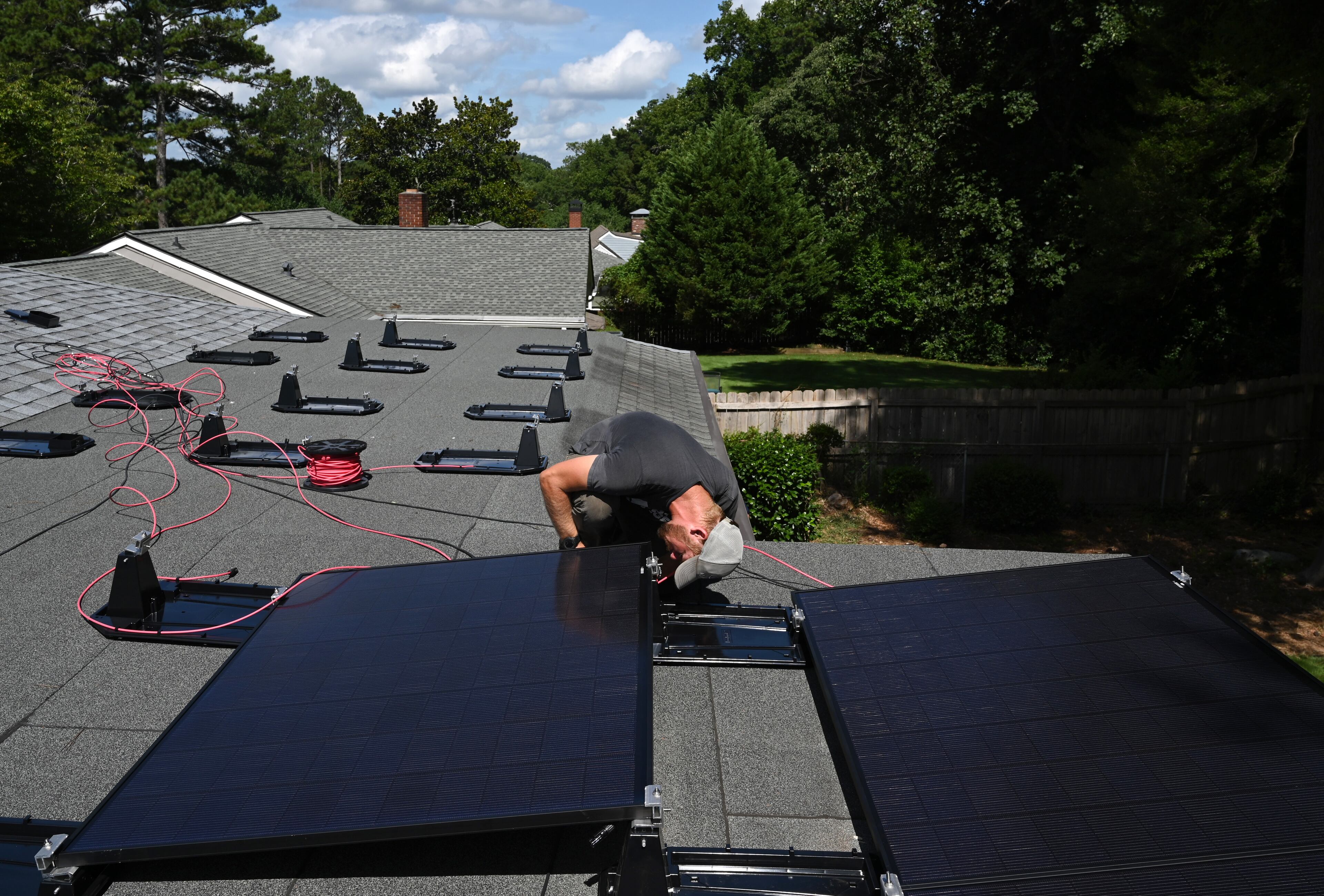Georgia has lost $2.9B in clean energy projects amid fed pullback, report says

The number of clean energy projects that have been canceled across the country, including in Georgia, has starkly increased since President Donald Trump retook the White House, according to a new report.
More than $24 billion worth of projects in the electric vehicle, battery and renewable energy sectors have fallen apart this year, according to data released Wednesday from nonpartisan group E2. Georgia has seen three projects canceled this year, totaling more than $2.9 billion in promised investment and 1,077 anticipated jobs.
Since returning to office, Trump has led an effort to dismantle — including cutting financial support — many of the clean energy and climate initiatives championed by President Joe Biden. While the climate initiatives were championed by Democrats, much of the private sector investment and jobs promises flowed to Republican-leaning states, such as Georgia.
E2 analysts expect the trend to continue as federal policies bolstering clean energy initiatives are revoked.
“The findings underscore the growing risk that federal and administrative policy rollbacks — especially the removal of clean energy incentives — are destabilizing one of the nation’s fastest-growing industries, with ripple effects across supply chains, manufacturing hubs and rural economic development,” the report said.
Over the past five years, Georgia has emerged as a national hub for clean energy investment, especially for EV assembly, battery manufacturing and solar panel production.
Aside from Rivian’s planned EV factory east of Atlanta and Hyundai’s Metaplant near Savannah, most of those projects were announced after August 2022. That’s when President Joe Biden signed the Inflation Reduction Act, a climate and health care law that included a bevy of clean energy tax credits and incentives intended to jolt American investment.
Trump and other Republicans have criticized those policies, arguing it unfairly tips the scale in favor of clean energy companies. Many of those projects, including several in Georgia, also received large incentive packages from state and local officials.
Biden and Democrats argued boosting this type of investment is a matter of national security to counter efforts by China to monopolize industries seen as critical to the future of transportation and energy.
While EV adoption has grown significantly in recent years, sales of electric autos have not met bullish industry forecasts. Automakers and and manufacturers in other sectors have also faced economic headwinds, such as inflation, supply chain issues and increasing uncertainty and costs surrounding tariffs.

E2 has tracked the status of large-scale clean energy projects since the IRA was adopted. There have been 35 such announcements for Georgia, totaling nearly $12.9 billion of promised investment and 17,380 estimated jobs. The Carolinas are the only two states with more investment announced in that time span.
Trump’s One Big Beautiful Bill Act, which he signed in July, revoked many of the IRA’s clean energy initiatives. In early October, he also canceled nearly $8 billion in additional clean energy grants across 16 states, all of which voted for his Democratic challenger, Vice President Kamala Harris, in last year’s presidential election.
In tracking cancellations, closings and downsizings, E2 incorporates all scuttled projects, including those announced before August 2022. The organization cites nine such projects in 2023, 14 in 2024 and 42 in 2025.
Those derailed projects were twice as likely to be in a Republican district, E2 found. Projects that were canceled, closed or downsized will cost Republican districts about $14.6 billion in promised investment and more than 19,000 promised jobs in comparison to $7.8 billion and 7,040 jobs in Democratic jurisdictions.

The two largest Georgia projects impacted this year were the cancellation of Freyr Battery’s $2.6 billion factory in Coweta County and the indefinite construction pause of Aspen Aerogels EV-related facility in Bulloch County. The third canceled project was SungEel’s scuttled battery recycling facility in Stephens County.
Despite the overall downturn, a few new clean energy efforts are getting the green light. About $542 million on new projects nationwide were announced in September, though none of which are in Georgia.
“However, new investments still fall far short of offsetting the scale of cancellations and slowdowns across the clean energy manufacturing base,” the report said.



